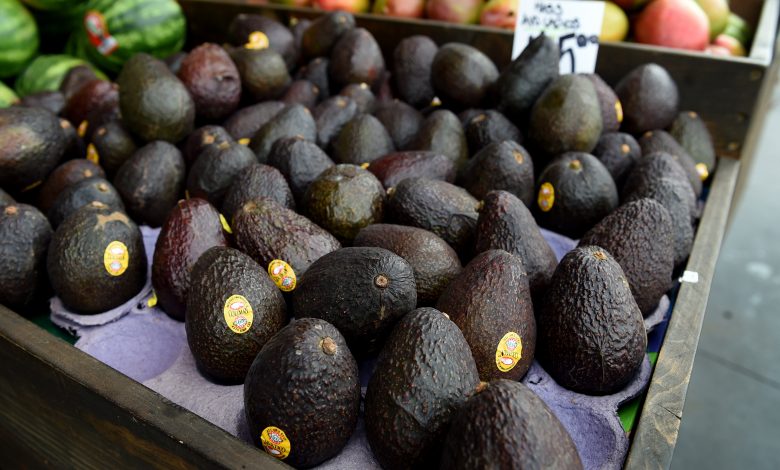
THE horticulture industry champion has showered praise to President Samia Suluhu Hassan for unlocking the strategic Chinese avocado market worth nearly 150 million US dollars (about 347.3bn/-) per annum.
Courtesy of President Samia’s diplomatic agreement with her Chinese counterpart, Xi Jinping, during her maiden state visit, Tanzania and China signed a protocol on sanitary and phytosanitary (SPS) measures to allow Tanzanian-grown avocados to access the latter’s lucrative and sprawling market.
“I’m so grateful and proud of our president for her finest diplomatic traits that saw the lucrative avocado market of the world’s most populous nation opened after four years of our futile struggles,” Tanzania Horticultural Association (TAHA) Chief Executive Officer (CEO) Dr Jacqueline Mkindi said.
It is understood, the process started in 2018 when TAHA discovered the Chinese avocado potential market, courting the government to use its diplomatic channels to ease the stringent SPS conditions that restrict local avocados to access the roomy and lucrative market.
Dr Mkindi said the Head of State move means a boost to the national strategy intends to spur horticulture industry to earn the economy 2 billion US dollars per annum, and create decent employment to a critical mass of youths and women along the entire value chain come 2030.
The deal also offers a new impetus for key players to work extra time to support initiatives that prepare local farmers produce quality avocado and certification to be able to hook a lion’s share of the Chinese multi-million-dollar market value.
Official data shows that in 2021 China imported 59.61 million metric tonnes valued at 149 million US dollars, owing to Chinese soaring appetite for avocados, driven by demand from its burgeoning health-conscious middle-class that has made the “butter fruit” — unheard of a few years ago — the country’s star performer in the imported fruit market.
Estimates indicate that China’s avocado import value would surge to 174 million US dollars per annum by 2026, offering Tanzania a huge opportunity to significantly boost its export of butter fruit as well as other horticultural produce.
Dr Mkindi noted that the Chinese market would stimulate avocado production in Tanzania by both small- and large-scale farmers boosting incomes at household levels as well as increasing investment in agro-processing.
Current Tanzania’s annual avocado exports stand at around 12,000 metric tonnes worth nearly 30 million US dollars, however, Dr Mkindi said by 2026 the country envisages exporting virtually 20,000 metric tonnes and bring home about 50 million US dollars per year.
Tanzania produces an average of 47,000 metric tonnes of exportable avocados annually, of which slightly over 12,000 metric tonnes are exported annually.
TAHA boss said that the sky’s the limit for Tanzania to flood the Chinese avocado market, owing to its competitive advantage of prevailing direct ship plying between the two countries, making it much quicker to export than from Chile, Peru and Mexico.
“A signed bilateral trade deal means everyone’s win. It keeps the shelves of China’s supermarkets stocked with our butter fruits and in return, it brings foreign currency to our economy, creates employment to youths and women in the value chain as well as offers investors assurance of returns,” Dr Mkindi explained.
The pact will help Tanzania’s avocados fetch good prices, while reducing overdependence on the European Union (EU) and Gulf countries’ markets, which are already flooded with supply from the major producing countries.
A kilogramme of the avocado fruit in China is arguably fetching 8 US dollars compared to the 6 US dollars that Europe is offering for the same quantity.
At the continental and the global level, Tanzania is the third-largest producer in Africa after South Africa and Kenya and the 19th country in the world.
However, Tanzania’s avocado industry is the fastest-growing subsector in the horticultural industry, with production projected to double in the next three years due to suitable land.
The move for China to grant market access for Tanzanian avocados is part of Beijing’s elaborate plan to increase imports from Africa, to help balance the trade between China and the continent.
Most Chinese exports to Africa are finished products – ranging from textiles to electronics – while raw materials and unprocessed products dominate African exports, with the balance of trade heavily in China’s favour.
According to Chinese customs data trade with Africa increased by 35 per cent in 2021 to a record high of 254 billion US dollars.
China exported 148 billion US dollars in goods to Africa, up 29.9 per cent on 2020, while receiving 106 billion US dollars in imports from the continent – a rise of 43.7 per cent.
To help balance out the trade, President Xi vowed to boost imports from Africa to 300 billion US dollars in the next three years.
According to China’s foreign ministry, China has granted market access to 25 kinds of food and agricultural products from 14 African countries – including Tanzania, Kenya, South Africa, Benin and Egypt – since the 2018 FOCAC.
China is now the second-largest destination for African agricultural exports, the ministry said. It said in recent years, Africa’s agricultural exports to China had grown an average 11.4 per cent annually.
In 2021, African agricultural exports to China grew 18.2 per cent year on year, ministry spokesman Wang Wenbin said.
Source: DN
